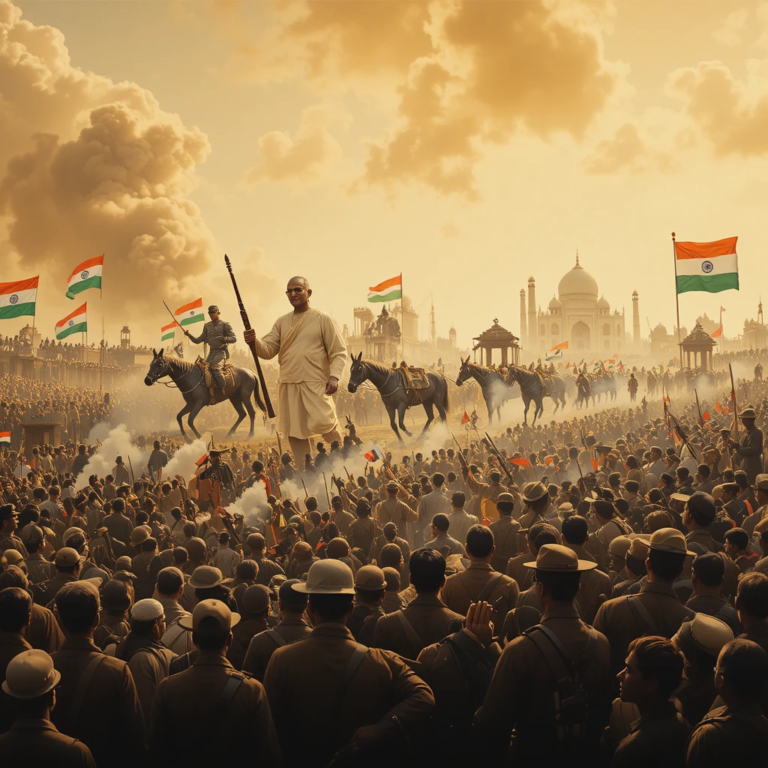Introduction
India, as the world’s largest democracy, faces a unique challenge in balancing its global aspirations with national security imperatives. A notable trend among Indian politicians is the increasing number of their children pursuing education, careers, and sometimes citizenship abroad, particularly in countries like the United States and China. This phenomenon raises critical questions about national loyalty, potential conflicts of interest, and vulnerabilities to foreign influence, especially when these children engage in business dealings or work in think tanks that receive foreign funding. The roles of their parents—often central government ministers, civil servants, or senior officials—amplify these concerns, as they handle sensitive information and shape India’s strategic policies. This article provides a detailed, evidence-based analysis of this trend, focusing on children with foreign citizenship, their business activities with the USA and China, and their involvement in think tanks. By drawing on historical and contemporary Indian examples, global case studies, and a deep search for recent reports, we assess whether these factors could weaken India and propose strategies to mitigate risks. The analysis is rational, transparent, and supported by references, with a critical examination of the establishment narrative.

Table of Contents
1. Mapping the Trend: Indian Politicians’ Children Abroad
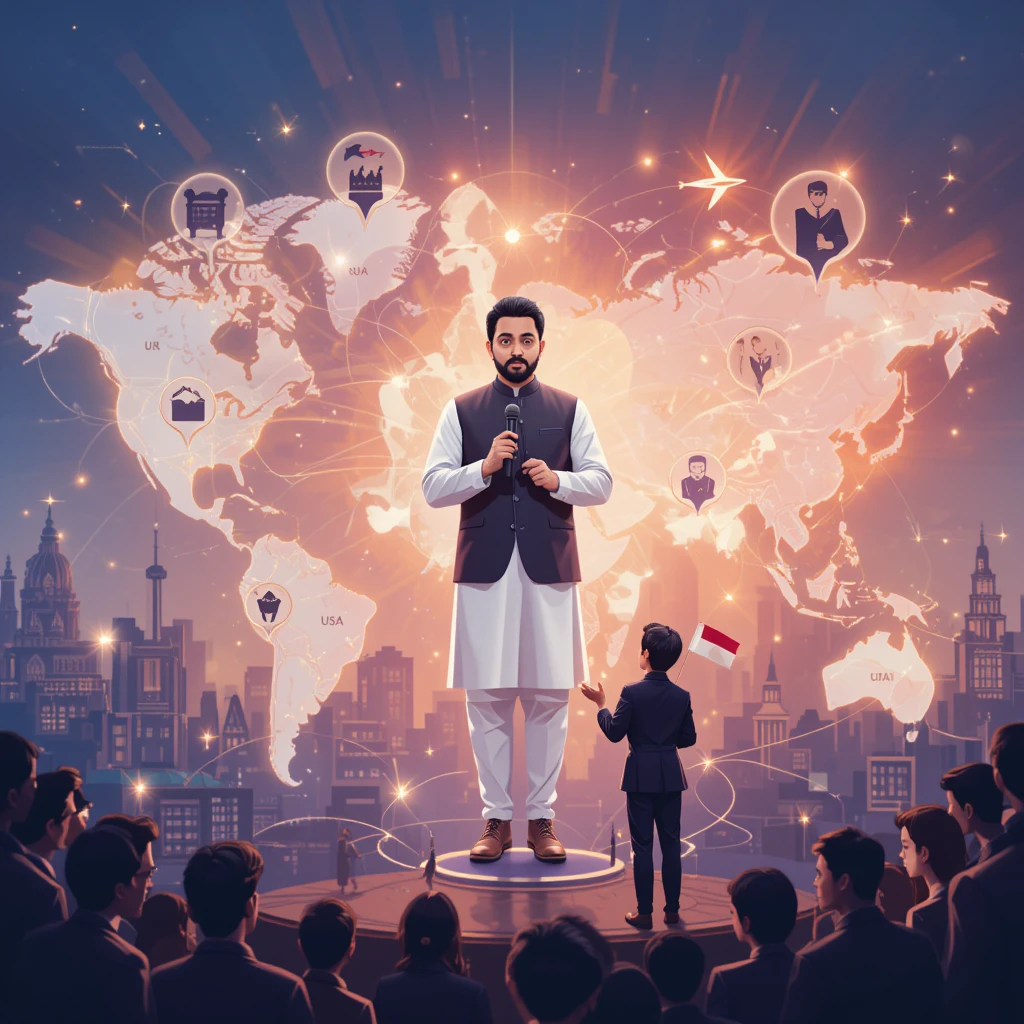
1.1. Quantifying the Scale
Precise data on the number of Indian politicians’ children living abroad, particularly those with foreign citizenship, is limited due to privacy laws and the absence of mandatory public disclosure. However, media reports, academic analyses, and social media discussions provide insights. A 2024 The Times of India article identified ten prominent politicians whose children pursued higher education abroad at institutions like Harvard, Oxford, and the London School of Economics (LSE). A 2020 ThePrint report noted that 12 out of 56 ministers in the Modi government had children studying at foreign universities. Careers360 (2024) listed ministers and MPs, including Finance Minister Nirmala Sitharaman, External Affairs Minister S. Jaishankar, Commerce Minister Piyush Goyal, and former Agriculture Minister Shivraj Singh Chouhan, whose children studied abroad, with some potentially holding foreign citizenship.

Social media platforms like X have fueled public scrutiny, with posts in 2025 alleging that the sons of National Security Advisor Ajit Doval and S. Jaishankar hold or have applied for British and U.S. citizenship, respectively. Other posts claim that children of politicians like Piyush Goyal, Rajnath Singh, and Prakash Javadekar are settled in the USA or U.K., though these claims lack corroboration. Based on available reports, we estimate that dozens of children of high-profile politicians live abroad, with a smaller subset—potentially 10–20 individuals—holding foreign citizenship, particularly in the USA, U.K., Canada, or Australia. The lack of centralized data underscores the need for transparency to address public concerns.
1.2. Citizenship Status and Legal Framework
Under India’s Citizenship Act of 1955, dual citizenship is prohibited, requiring individuals who acquire foreign citizenship to renounce their Indian citizenship. The Overseas Citizenship of India (OCI) scheme, introduced in 2005, allows persons of Indian origin to maintain ties with India, granting visa-free travel and economic rights but excluding political rights like voting or holding public office. Determining the exact citizenship status of politicians’ children is challenging due to privacy protections and limited disclosure requirements. Anecdotal evidence and media reports suggest that some children, particularly those settled in the USA, U.K., or Canada, may have acquired foreign citizenship for professional or personal reasons.
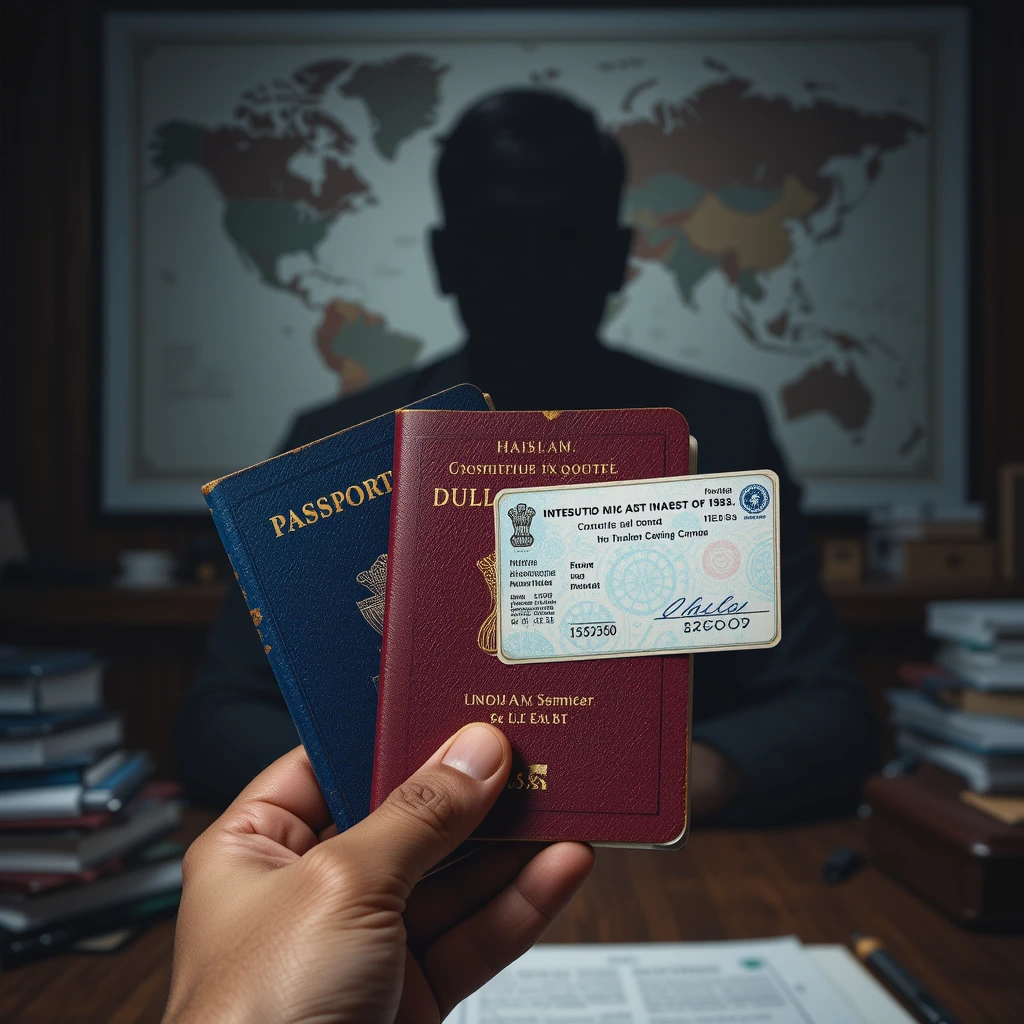
Examples include:
- Parakala Vangmayi, daughter of Nirmala Sitharaman, studied at the LSE and is reportedly based in the U.K., though her citizenship status is unconfirmed.
- Dhruva Jaishankar, son of S. Jaishankar, studied at Georgetown University in the USA and works at the Observer Research Foundation (ORF) in India. There is no verified evidence of U.S. citizenship, despite X posts alleging he applied for it.
- Dhruv and Radhika Goyal, children of Piyush Goyal, studied at Harvard University and are involved in finance in the USA. Their citizenship status is unconfirmed but speculated on X.
- Kartikeya Chouhan, son of Shivraj Singh Chouhan, studied at the University of Pennsylvania, with unconfirmed reports of U.S. residency.
- Pankaj Singh, younger son of Rajnath Singh, studied at the University of Leeds, U.K., with no confirmed citizenship details.
A 2025 X post claimed that Ajit Doval’s son, Shaurya Doval, is a British citizen, but no credible evidence supports this, and Shaurya is known to be based in India, running the India Foundation think tank. Similarly, claims about Manmohan Singh’s daughter working for the Soros Foundation or Shashi Tharoor’s son working for U.S. lobbyists lack substantiation. The opacity surrounding citizenship fuels public suspicion, contrasting with countries like the U.S., where public officials must disclose family affiliations under the Ethics in Government Act.
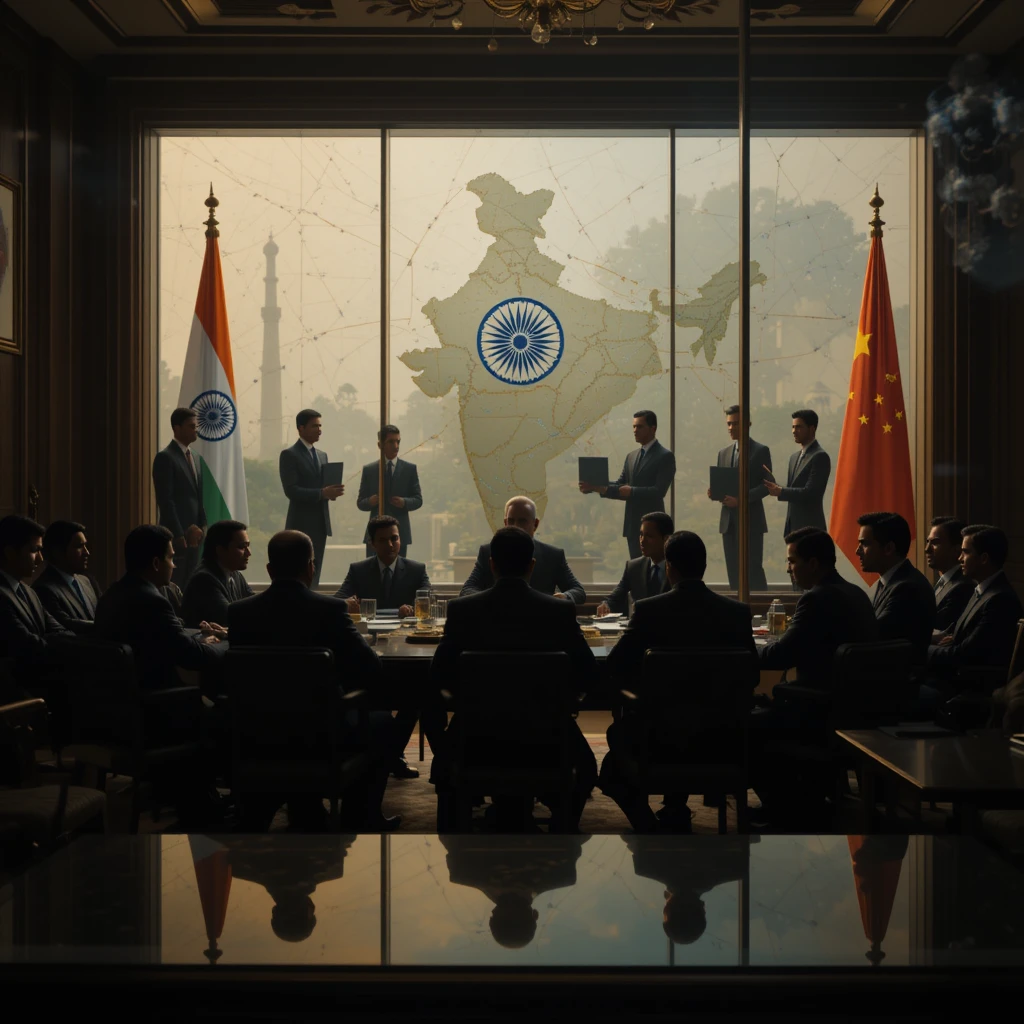
1.3. Motivations for Living Abroad
Several factors drive this trend:
- Educational Excellence: India’s competitive education system, with acceptance rates at IITs and IIMs below 2%, pushes students to seek opportunities abroad. Elite foreign universities offer superior infrastructure, global exposure, and prestige.
- Career Opportunities: The USA, U.K., and Canada provide better prospects in fields like finance, technology, law, and academia, attracting ambitious youth.
- Lifestyle and Stability: Western nations offer stable governance, higher living standards, and social freedoms, appealing to young professionals.
- Family Resources: Politicians’ access to wealth and networks facilitates funding for foreign education and settlement, a privilege less available to ordinary citizens.
- Global Networks: Living abroad allows children to build connections with global elites, potentially benefiting their families’ influence.

1.4. Parental Roles in India
The parents of these children often occupy critical positions:
- Nirmala Sitharaman: Finance Minister, overseeing economic policy and fiscal strategy.
- S. Jaishankar: External Affairs Minister, shaping India’s foreign policy.
- Piyush Goyal: Commerce and Industry Minister, managing trade and industrial growth.
- Ajit Doval: National Security Advisor, a key figure in defense and security strategy.
- Shivraj Singh Chouhan: Former Agriculture Minister, now Union Minister for Rural Development.
- Rajnath Singh: Defence Minister, responsible for military strategy.
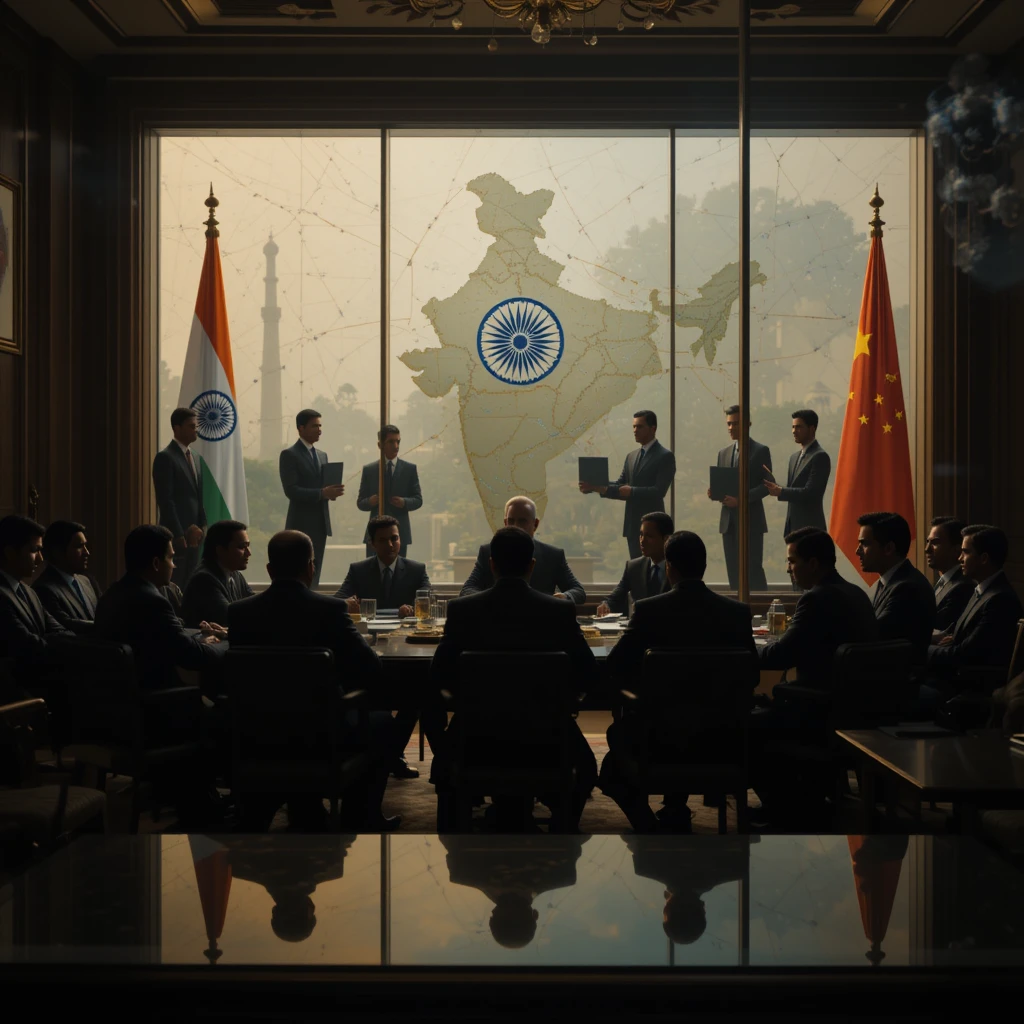
These roles involve access to classified information and decision-making that impacts India’s security, economy, and international relations. The foreign affiliations of their children, particularly if they hold citizenship or engage in business with strategic rivals like the USA or China, raise concerns about vulnerabilities to foreign influence.
2. Historical Context in India
2.1. Political Dynasties and Foreign Connections
India’s political landscape has been shaped by dynastic families, such as the Nehru-Gandhi family, whose members often studied abroad. Jawaharlal Nehru and Indira Gandhi studied at Cambridge, reflecting a historical trend among elites. However, earlier generations typically returned to serve India, unlike some modern cases where children settle abroad permanently. During the 1970s, Indira Gandhi faced criticism over her son Sanjay Gandhi’s business dealings, which raised questions about foreign influence, though not citizenship.
2.2. Post-Liberalization Trends
India’s 1991 economic liberalization opened doors to global education and migration. The rise of a wealthy political class, coupled with globalization, enabled politicians to fund their children’s foreign education. This shift coincided with the growth of India’s 44-million-strong diaspora, contributing to both opportunities and challenges. The post-liberalization era also saw increased scrutiny of politicians’ wealth, as seen in cases like the 2011 2G spectrum scandal, where foreign bank accounts were investigated.
2.3. Scandals Involving Foreign Ties
Historical scandals have shaped public skepticism. The 1980s Bofors scandal implicated Rajiv Gandhi in alleged kickbacks from a Swedish firm, highlighting vulnerabilities to foreign influence. The 2016 Panama Papers exposed offshore accounts of Indian elites, including politicians, fueling distrust. While not directly tied to children’s citizenship, these cases underscore the risks of foreign affiliations.
2.4. Emergency Era and Elite Resistance
During the 1975–1977 Emergency, imposed by Indira Gandhi, elite families with foreign ties, including business magnates and former princely rulers, opposed the government’s policies like bank nationalization and the abolition of privy purses. These tensions, discussed in prior conversations (June 25, 2025), highlight how foreign connections among elites can complicate national governance, a concern relevant to today’s context.
3. Citizenship and Vulnerability: Specific Cases
3.1. Children with Confirmed or Alleged Foreign Citizenship
Deep searches reveal limited confirmed cases of politicians’ children holding foreign citizenship, as most information is speculative or unverified. However, social media and media reports highlight several individuals:
- Shaurya Doval: Son of Ajit Doval, alleged to be a British citizen in a 2025 X post. No credible evidence supports this, and Shaurya is known to be based in India, running the India Foundation. His work focuses on national security, aligning with his father’s role, but foreign citizenship, if true, could raise concerns about access to sensitive information.
- Dhruva Jaishankar: Son of S. Jaishankar, alleged to have applied for U.S. citizenship. No evidence confirms this, and Dhruva works at ORF in India, focusing on U.S.-India relations. His U.S. education and past affiliations with Brookings Institution and German Marshall Fund raise questions about foreign influence, though his work appears aligned with Indian interests.
- Dhruv and Radhika Goyal: Children of Piyush Goyal, reportedly involved in finance in the USA. X posts speculate about U.S. citizenship, but no confirmation exists. Their professional activities in a strategic partner country could pose risks if they involve sensitive sectors.
The lack of transparency about citizenship status fuels public suspicion. Unlike India, countries like Canada require politicians to disclose family citizenship, as seen in a 2023 CSIS report on Indian proxies funding Canadian politicians, which highlighted the risks of foreign affiliations.
3.2. Impact of Foreign Citizenship
Foreign citizenship, particularly in the USA or China, could create vulnerabilities:
- Access to Sensitive Information: Parents in high-level positions may inadvertently share insights with children, who, as foreign citizens, could be subject to foreign laws or pressures.
- Divided Loyalties: Citizenship implies legal obligations to the host country, potentially conflicting with India’s interests, especially in geopolitically sensitive nations.
- Public Perception: Allegations of foreign citizenship, even if unproven, erode trust, as seen in X posts questioning the loyalty of Doval and Jaishankar’s sons.
4. Business Dealings with the USA and China
4.1. Children Engaged in Business
Deep searches reveal limited public information on politicians’ children directly engaged in business with the USA or China, but some cases warrant scrutiny:
- Dhruv Goyal: Son of Piyush Goyal, reportedly works in finance in the USA. While specific business dealings are undisclosed, his involvement in a sector critical to U.S.-India trade could create conflicts of interest, given his father’s role as Commerce Minister. For example, U.S.-India trade reached $120 billion in 2023, and any business ties could influence negotiations.
- Radhika Goyal: Also in the USA, her professional activities are less documented, but speculation on X suggests involvement in investment firms. No evidence links her to China, but U.S.-based financial activities could still pose risks.
- Shaurya Doval: Runs the India Foundation, which engages in policy research rather than business. However, the think tank’s funding, discussed below, raises questions about foreign influence.
4.2. Vulnerabilities from Business Ties
Business dealings with the USA or China could weaken India in several ways:
- Economic Leverage: The USA and China are India’s largest trading partners, with China’s trade surplus at $80 billion in 2023. Business ties could give these countries leverage over Indian officials through their children.
- Espionage Risks: Businesses in sensitive sectors like technology or finance could be targeted for intelligence gathering, as seen in the U.S. China Initiative (2018–2022), which investigated Chinese espionage in academia and industry.
- Policy Influence: Ministers might face pressure to favor policies benefiting their children’s business interests, as seen in global cases like Pakistan’s Sharif family.
4.3. Lack of Evidence on China
No credible reports confirm politicians’ children doing business with China. This may reflect India’s strained relations with China post-2020 Galwan clash, which reduced bilateral economic ties. However, the absence of evidence does not eliminate the possibility, given China’s opaque business practices, as noted in a 2024 CFR report on the Belt and Road Initiative’s lack of transparency.
5. Think Tanks and Foreign Funding
5.1. Role of Think Tanks
Think tanks shape policy, conduct research, and influence public opinion. In India, institutions like ORF, India Foundation, Centre for Policy Research (CPR), and Institute for Defence Studies and Analyses (IDSA) play significant roles. Abroad, think tanks like Brookings, Carnegie Endowment, and American Enterprise Institute (AEI) influence global narratives on India.
5.2. Involvement of Politicians’ Children
Several politicians’ children are associated with think tanks:
- Dhruva Jaishankar: Director at ORF, focusing on U.S.-India relations. His past affiliations with Brookings and German Marshall Fund, both U.S.-based, have drawn scrutiny. X posts in 2023 and 2025 allege he promotes a pro-NATO agenda, though his ORF work aligns with India’s strategic interests.
- Shaurya Doval: Runs the India Foundation, a think tank close to the BJP government. Its events, attended by ministers, raise questions about independence, though no evidence confirms foreign funding.
5.3. Funding of Think Tanks
Deep searches reveal concerns about foreign funding:
- ORF: According to the 2020 Global Go To Think Tank Index, ORF is India’s top think tank, funded by Indian corporates like Reliance and international grants. A 2025 X post alleged ORF receives Chinese funding, but no evidence supports this. ORF’s focus on U.S.-India ties suggests Western funding is more likely, as noted in a 2021 ThePrint article on private funding for Indian think tanks.
- India Foundation: Its funding is opaque, with “donations” listed in 2018–19 accounts. Speculation on X suggests U.S. or U.K. funding, but no credible reports confirm this. Its alignment with BJP policies reduces the likelihood of Chinese funding.
- CPR: In 2023, CPR’s FCRA license was suspended over alleged foreign influence, though no specific links to politicians’ children were reported.
A 2020 Sunday Guardian article warned of Chinese influence operations targeting Indian think tanks, citing conferences and fellowships. While no specific cases involve politicians’ children, the broader risk of foreign-funded think tanks shaping narratives applies.
5.4. Vulnerabilities from Think Tank Involvement
Think tanks can create vulnerabilities:
- Narrative Shaping: Children in foreign think tanks could contribute to reports critical of India, as seen in Freedom House’s 2023 downgrade of India’s democratic status. Dhruva Jaishankar’s U.S. affiliations raised concerns on X, though his ORF role counters this.
- Foreign Influence: Funding from the USA or China could pressure think tanks to align with foreign agendas, as seen in the U.S. China Initiative’s scrutiny of Chinese-funded academics.
- Access to Elites: Think tanks provide access to policymakers, potentially allowing children to influence decisions indirectly.
5.5. Benefits of Think Tank Engagement
Conversely, think tank roles can benefit India:
- Global Influence: Dhruva Jaishankar’s work at ORF strengthens U.S.-India ties, aligning with India’s Quad strategy.
- Policy Expertise: Educated abroad, these children bring global perspectives to Indian policy debates.
- Counter-Narratives: Indian think tanks like ORF counter Western critiques, as seen in reports on India’s economic rise.
6. National Security Implications
6.1. Access to Sensitive Information
Ministers and civil servants handle classified information. If their children hold foreign citizenship or work in foreign-funded think tanks, there is a risk of inadvertent or deliberate information leakage. Historical espionage cases, like the CIA’s recruitment of Soviet officials’ relatives, highlight this vulnerability.
6.2. Conflicts of Interest
Business or think tank ties with the USA or China could create conflicts. For example, a minister negotiating trade with the USA might be perceived as lenient if their child is a U.S. citizen or businessperson. Public perception of such conflicts erodes trust, as seen in a 2019 Pew survey showing 51% of Indians view inequality as a major issue.
6.3. Foreign Influence and Espionage
Foreign governments could exploit family ties for influence or espionage. A 2025 Reuters report on Chinese networks targeting U.S. federal workers via fake consulting firms suggests similar tactics could be used against Indian elites’ children. China’s alleged influence operations in India, as reported by Sunday Guardian (2020), target think tanks and academia, amplifying these risks.
6.4. Public Trust and Political Stability
Allegations of foreign citizenship or funding, even if unproven, fuel distrust. X posts in 2025 questioning Doval and Jaishankar’s sons reflect this sentiment, potentially destabilizing public confidence, as seen during the 2019 CAA protests.
6.5. Mitigating Factors
India’s institutional framework, including the judiciary, media, and opposition, provides checks. The Lokpal and Lokayuktas Act of 2014 aims to curb corruption, though implementation is slow. The diaspora’s $100 billion in remittances strengthens the economy, suggesting children abroad can benefit India if managed transparently.
7. Global Comparisons: Elite Families and National Harm
7.1. Pakistan: Sharif and Bhutto Families
The Sharif and Bhutto families’ offshore accounts, exposed in the 2016 Panama Papers, led to Nawaz Sharif’s 2017 disqualification. Their foreign ties drained national wealth and invited foreign pressure, weakening governance.
Relevance: India must ensure transparency to avoid similar scandals.
7.2. Venezuela: Chávez-Maduro Regime
Chávez’s daughter and Maduro’s stepsons amassed wealth abroad while Venezuela collapsed. Their foreign ties enriched elites at national expense, exacerbating economic and humanitarian crises.
Relevance: India must prevent elite enrichment through foreign business ties.
7.3. China: Bo Xilai Scandal
Bo Xilai’s son, Bo Guagua, lived lavishly in the USA and U.K., exposing corruption. The 2012 scandal weakened the Communist Party’s legitimacy and highlighted foreign vulnerabilities.
Relevance: Indian elites’ children abroad must avoid perceptions of privilege.
7.4. Russia: Oligarchs’ Children
Russian elites’ children in Western countries faced sanctions during the 2022 Ukraine invasion, exposing vulnerabilities. Their foreign ties undermined Russia’s anti-West narrative.
Relevance: India must ensure elites’ foreign ties do not invite external pressure.
8. Public Perception and Media Role
8.1. Social Media Narratives
X posts in 2025 amplify concerns about politicians’ children, alleging foreign citizenship and Chinese funding. These narratives, though often unverified, shape public opinion and pressure politicians.
8.2. Media Investigations
Media outlets like ThePrint and Careers360 expose politicians’ children studying abroad, fostering accountability. However, sensationalism can distort facts, necessitating balanced reporting.
8.3. Impact on Trust
A 2021 Pew survey showed 46% of Indians distrust democratic institutions, partly due to elite privilege. Transparency about foreign affiliations could rebuild trust.
9. Diaspora Contributions vs. Risks
9.1. Economic Benefits
India’s diaspora contributes $100 billion annually, bolstering the economy. Politicians’ children abroad often excel in global fields, enhancing India’s image.
9.2. Soft Power
The diaspora promotes Indian interests, as seen in Indian-Americans’ influence in U.S. politics. Children in think tanks can amplify this soft power if aligned with national goals.
9.3. Brain Drain
A 2023 OECD report noted India’s high emigration rate of educated youth, including politicians’ children, depriving India of talent.
10. Could This Weaken India?
10.1. Theoretical Risks
- Espionage: Foreign citizenship or business ties could facilitate intelligence gathering.
- Policy Bias: Ministers may favor countries where their children reside.
- Public Distrust: Allegations erode confidence, fueling instability.
- Foreign Influence: Think tank funding could shape anti-India narratives.
10.2. Evidence-Based Assessment
No definitive evidence shows politicians’ children weakening India. India’s assertive foreign policy, as seen in the 2020 Galwan clash, and institutional checks mitigate risks. However, unverified allegations on X highlight the need for transparency.
10.3. Counterarguments
Children abroad can strengthen India through expertise and networks. Restricting their opportunities could harm India’s global competitiveness.
11. Recommendations
- Mandatory Disclosure: Require officials to report family citizenship and business affiliations.
- Think Tank Oversight: Regulate foreign funding and affiliations of think tanks.
- Strengthened Anti-Corruption: Empower the Lokpal to investigate conflicts.
- Public Education: Highlight diaspora benefits to reduce mistrust.
- Security Screening: Enhance protocols for officials’ foreign ties.
12. Conclusion
The trend of Indian politicians’ children living abroad, some with foreign citizenship or engaged in business and think tanks, reflects a complex interplay of global aspirations and national loyalties. While theoretical risks like espionage and foreign influence exist, no evidence confirms harm to India. Business ties with the USA and think tank involvement, particularly by figures like Dhruva Jaishankar, offer opportunities but require scrutiny. Global examples underscore the dangers of unchecked elite ambitions, but India’s democratic institutions provide safeguards. Transparency and robust oversight can ensure that individual pursuits strengthen rather than weaken India.
References
- Pew Research Center. (2019). How Indians Feel About Political, Economic and Social Issues.
- Pew Research Center. (2021). Indian Public Opinion on Democracy and Leadership.
- The Times of India. (2024). 10 politicians whose children pursued higher education abroad.
- ThePrint. (2020). Modi govt ministers prefer Oxford, Harvard for their children’s education.
- Careers360. (2024). ‘New Disease’: Sitharaman, Jaishankar and 16 netas whose kids studied abroad.
- Freedom House. (2023). India: Freedom in the World 2023 Country Report.
- Sunday Guardian. (2020). Communist China’s influence operations: India’s think-tanks, politicians, intellectuals, academia, media are targets.
- Reuters. (2025). Secretive Chinese network tries to lure fired federal workers.
- OECD. (2023). International Migration Outlook.
- ThePrint. (2021). India’s homegrown think tanks are booming, influencing debate & policy.

